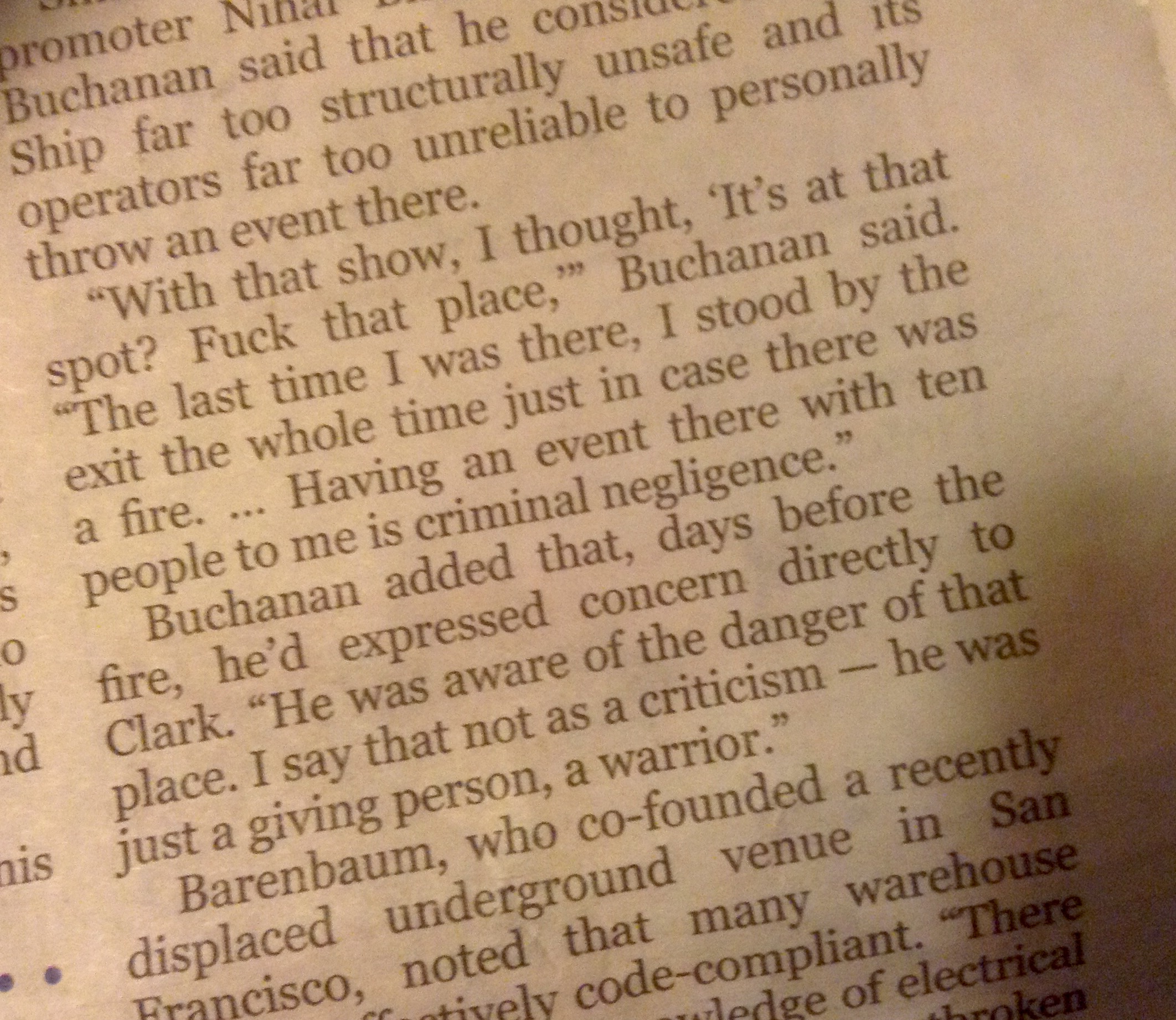A gloomy Oakland-in-December afternoon. We are visiting the burned out hulk of the Ghost Ship collective (48hills.org). The roof is gone. The interior is gutted. Areas around the windows are blackened. The sinister grinning skull mural seems unaffected, a creepy reminder that Ghost Ship operated beyond the pale of acceptable risk (sfchronicle.com).
By all accounts, Ghost Ship was playing Russian roulette with people's lives. No sprinkler system, exposed electrical, power strips daisy chained across the floor, rickety pallet staircase, propane tanks.
How could this be allowed to happen? People who know best reply with, Why didn't this happen sooner? (eastbayexpress.com).

Ghost Ship collective's founder, Derick Ion Almena -- edgy, charismatic, manipulative -- was aware of the electrical concerns, the physical egress problems, the absence of fire mitigation. He chose to ignore and compound the risks.
The audio tech who assembled the sound components, the DJ behind the music, the visual projection artist -- they knew they were performing live in a firetrap. They comprehended the danger, decided to play the odds.
Standing in the Oakland drizzle, thinking: Across the street is the result of treating regulations designed to protect people as inconveniences to actively work around. It usually requires a brutal, fatal event for us to re-learn the lesson.
Ghost Ship has parallels to other instances of benign negligence. The death toll in L'Aquila, Italy, following the 6.5 August earthquake, would've been much less if buildings were constructed to comply with required earthquake safety standards (nytimes.com).
We try to sidestep risk we know of by convincing ourselves that the worst won’t happen. We have regulations that protect our critical infrastructure from falling under attack, yet we tolerate security vulnerabilities in industrial systems that will shut down the electric grid (sans.org).
Benign neglect extends to the $2-trillion-a-year commerce engine that is the global Internet. Technologists blithely proclaim trust in Internet systems under assault, actively subverted, pwned. Meanwhile, a side effect of the Internet of Things (IoT) -- aka, Convenience Uber Alles -- is IoT botnets serving as the default launching pad for DDOS attacks (threatpost.com). We've enabled the Internet to eat itself.
No answer here, except to keep asking. Why was Ghost Ship allowed to operate despite flagrant safety risks? What other shared warehouse spaces aren't in Oakland FD's inspection database? Can reasonable regulations be imposed on artistic collectives without imposing unreasonable cost?
No answer except to be determined that there be no more ghostships.